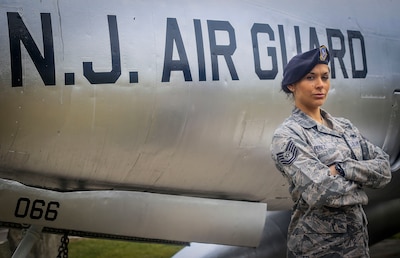By Jim Garamone DoD News, Defense Media Activity
WASHINGTON, March 16, 2018 — NATO has stepped up recrafting
deterrence and defense, and the alliance’s annual report for 2017 shows that
the trend lines for the alliance are up, Secretary General Jens Stoltenberg
said in Brussels yesterday.
The alliance nations have followed through with some
high-profile moves to deter Russian interference, the secretary general noted.
In 2017, NATO nations deployed four multinational battle groups to the Baltic
republics and to Poland. Canada, Germany, the United Kingdom and the United States
each lead a battalion-sized group, and troops from many NATO nations are
members.
Another action to counter Russia was increased forward
presence in the Black Sea region. The alliance also “increased our resilience
against hybrid war, and strengthened our cyber defenses,” Stoltenberg said.
NATO joined as an entity in the global coalition to defeat the Islamic State of
Iraq and Syria, he added, and the alliance also raised the level of cooperation
with the European Union and welcomed Montenegro as NATO’s 29th member nation.
Sharing the Burden
Burden-sharing has increased in the alliance, the secretary
general said. At the 2014 summit in Wales, member nations pledged to stop cuts
to defense budgets and increase spending to 2 percent of gross domestic product
within a decade. “Since then, we have seen three consecutive years of increased
defense spending in Europe and Canada, adding a total of $46 billion,” he said.
This increase means new equipment, Stoltenberg said. Since
the decision, he pointed out, alliance nations have spent $18 billion on major
equipment and increased investments in operations and exercises.
“For instance, in 2017 we decided to increase contributions
to our Resolute Support mission in Afghanistan, and allies have contributed
thousands of troops to our increased presence in the east of the alliance,” he
said. “At the end of 2017, there were over 23,000 troops serving in NATO
deployments, up from just under 18,000 in 2014 – before Russia’s illegal
annexation of Crimea and the rise of ISIS.”
Focus on Russia
Russia is a focus of all this activity. Stoltenberg
discussed the poisoning of former spy Sergei Skripal, his daughter and a
British police officer. The weapon – a military-grade nerve agent – was traced
to Russia. British officials say this attack is an unlawful use of force by
Russia against the United Kingdom.
“This is the first offensive use of a nerve agent on
alliance territory since NATO’s foundation,” the secretary general said. “All
allies agree that the attack was a clear breach of international norms and
agreements. This is unacceptable. It has no place in a civilized world.”
NATO regards any use of chemical weapons as a threat to
international peace and security, he said. “The attack in Salisbury has taken
place against the backdrop of a reckless pattern of Russian behavior over many
years,” Stoltenberg said.
He spoke about the Russian attack into Georgia in 2008, the
illegal annexation of Crimea from Ukraine in 2012 and Russia’s continued
military support to separatists in Eastern Ukraine. He also pointed to Russia’s
attempts to subvert democratic elections and institutions, and its military
buildup from the north of Europe to the Middle East.
The secretary general pointed to Russia’s military
modernization program, especially its investment in modernizing nuclear
weaponry. “Russia has integrated conventional and nuclear warfare in its
military doctrine and exercises,” he said. “This blurring of the line between
nuclear and conventional lowers the threshold for Russia’s use of nuclear
weapons, and the blurring of the line between peace, crisis and war is
destabilizing and dangerous.”
The alliance does not want a new Cold War or a new arms
race, Stoltenberg said. “But let there be no doubt: NATO will defend all allies
against any threat,” he added. “We will maintain strong conventional forces, as
well as a safe, secure and effective nuclear deterrent.”
Stepping Up in Afghanistan and Against ISIS
Russia is just one challenge to peace, and NATO has also
stepped up in Afghanistan. NATO forces are helping to train Afghan forces to
police their own country. “We have decided to increase the size of our Resolute
Support training mission from 13,000 to around 16,000,” the secretary general
said. “With our assistance, Afghan forces have increased military pressure on
the Taliban, ensuring they did not achieve their strategic objective of
capturing a provincial capital in 2017.”
The alliance strongly supports an Afghan-led, Afghan-owned
peace and reconciliation process. “I commend [Afghan] President [Ashraf] Ghani
for his courageous leadership. His offer to the Taliban is the clearest
invitation to peace yet. So I call on the Taliban to come to the negotiating
table.”
NATO also joined the coalition confronting ISIS. “We are
working to strengthen the Iraqi armed forces to fight terrorism, training
almost 500 Iraqi trainers so they can share their new skills with thousands of
others,” Stoltenberg said. “This year, we will further boost our contribution
by launching a new training mission in Iraq to build on our efforts and by
providing more support to our partners in the region such as Jordan and
Tunisia.
“The world does not stand still,” he said, “and neither does
NATO.”








